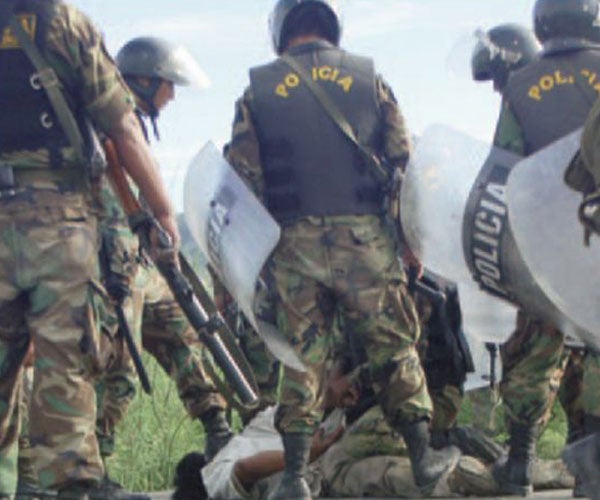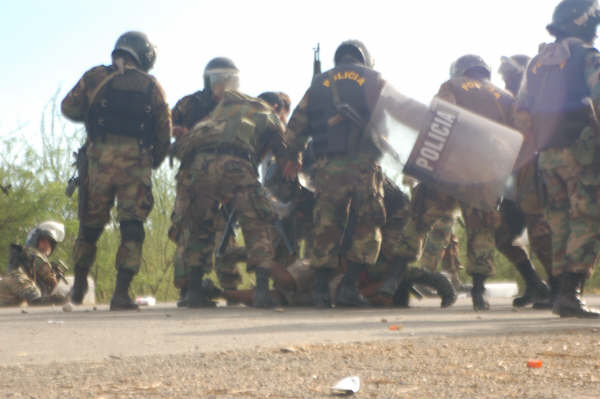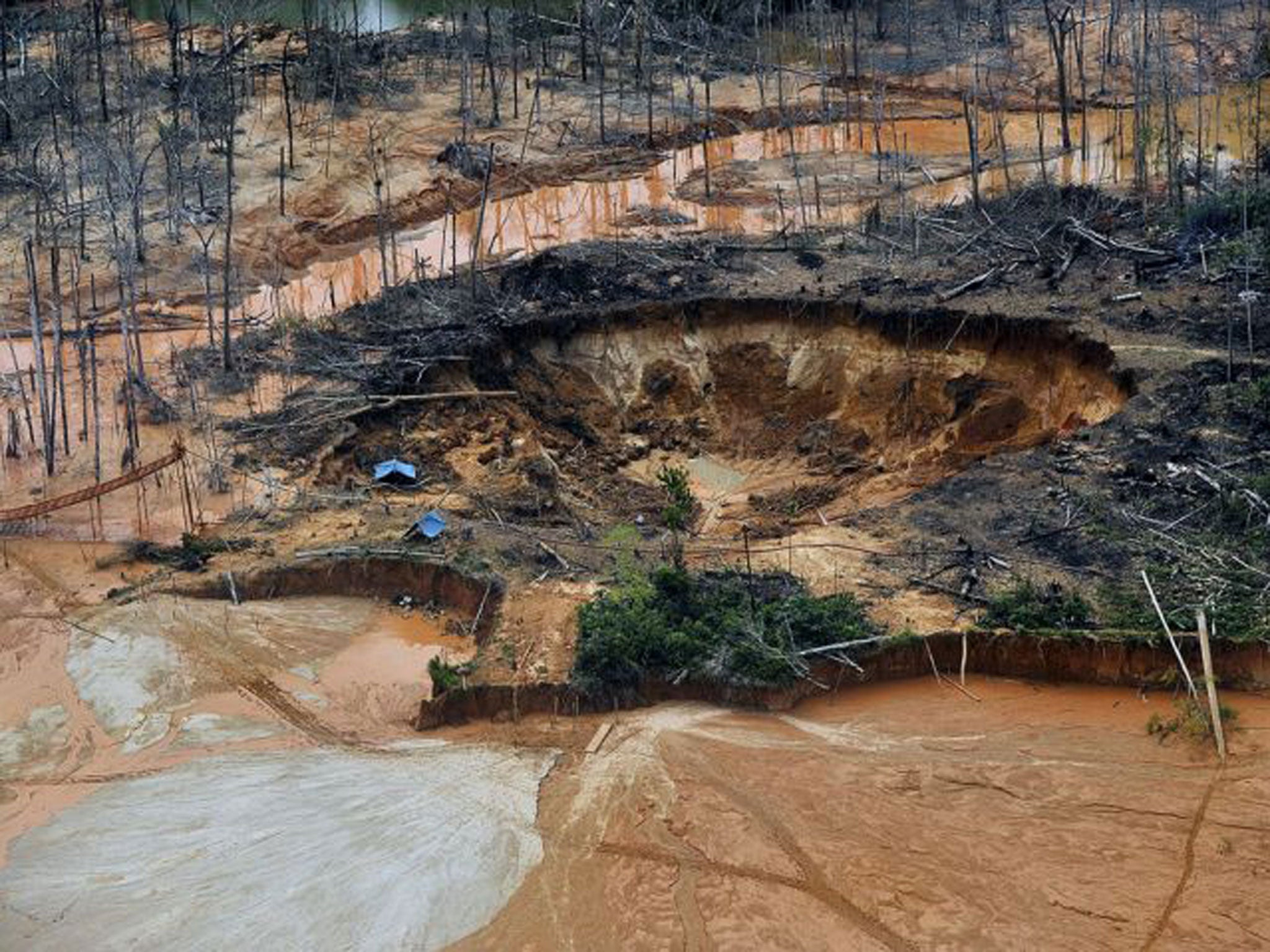Peruvian police and soldiers given 'licence to kill' protesters five years after Bagua violence
The Government has granted criminal immunity to officers who kill protesters

Your support helps us to tell the story
From reproductive rights to climate change to Big Tech, The Independent is on the ground when the story is developing. Whether it's investigating the financials of Elon Musk's pro-Trump PAC or producing our latest documentary, 'The A Word', which shines a light on the American women fighting for reproductive rights, we know how important it is to parse out the facts from the messaging.
At such a critical moment in US history, we need reporters on the ground. Your donation allows us to keep sending journalists to speak to both sides of the story.
The Independent is trusted by Americans across the entire political spectrum. And unlike many other quality news outlets, we choose not to lock Americans out of our reporting and analysis with paywalls. We believe quality journalism should be available to everyone, paid for by those who can afford it.
Your support makes all the difference.Five years after more than 30 people died in a bloody battle between police and environmental protesters in Peru, police and the armed forces have been granted a “licence to kill” demonstrators.
The move has sparked fears among human rights groups that there will be no reprieve for any excessive use of force as the mining industry continues to push into indigenous lands in Peru.
The country is one of the world’s largest producers of silver, copper and minerals and the Peruvian Government has granted mining licences for huge parts of rural provinces.
Local communities worried about its effect on their farmland and way of life, as well as pollution in rivers, have come into conflict with authorities through years of protests.
In June 2009, 33 people died in Bagua in the Amazonas region, when police and protesters clashed at a road blockade over a new law allowing mining companies to enter indigenous territories without the community’s consent.
When police moved in to disperse the 2,000 Aguaruna and Wampi Indians, many of whom were carrying spears and machetes, violence broke out killing 23 police officers and 10 civilians.

A further 200 people were injured in the violence, 80 of whom had been shot, and witnesses reported police firing bullets and tear gas and beating unarmed protesters.
A trial of 53 people, mostly from the Awajun and Wampís communities, for their alleged responsibility for acts of violence and killing the police officers started on 14 May this year.
They are among 400 protesters and activists facing prosecution on the basis of charges lodged by the mining companies, their staff or the public prosecutor, according to a report by the Dublin-based human rights group Front Line Defenders (FLD).
No charges have been brought against police for protesters’ deaths or injuries and the group is concerned that their new legal immunity will worsen the situation.
Andrew Anderson, the deputy director of FLD, said: “Front Line Defenders has noted with deep concern a trend across the region of governments trampling over the rights of local and indigenous communities and of those defending them in their rapacious search for raw materials and profit.
“The Government of Peru has an obligation to respect the rights of all its citizens and to protect those brave human rights defenders who speak out on their behalf.”
Law 30151, which was adopted in January, states that members of the armed forces and the National Police are “exempt from criminal responsibility” if they cause injury or death through the use of their guns or other weapons while on duty.

Intimidation, death threats, surveillance and “judicial harassment” has also been reported by activists working against oil and mining companies in Peru.
Although the vast majority of cases have not led to prosecution, the report argues that the judicial system is being abused to smear environmental activists as “violent extremists”.
The FLD is calling on Peru’s government to repeal the “licence to kill” law for the police and armed forces and fully investigate reported harassment and brutality.
Amnesty International has also called on Peruvian authorities to ensure everyone suspected of crimes at Bagua is brought to justice.
On a statement on the fifth anniversary of the violence, on 5 June, the group said the Government must “uphold the rights of indigenous people to ancestral lands, their means of survival and the right to free prior and informed consent on all matters that affect them”.
Guadalupe Marengo, the group’s Americas deputy programme director, said: ““If the Peruvian authorities are truly committed to bringing to justice those suspected of criminal responsibility for these deaths, it is not enough to punish the protesters and ignore possible abuses by the police.
“The authorities must learn from the lessons of Bagua.”
Join our commenting forum
Join thought-provoking conversations, follow other Independent readers and see their replies
Comments